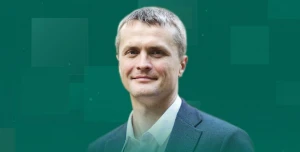
Prigozhin's mutiny was agreed upon with Kremlin, Ukrainian official says
Prigozhin's mutiny in Russia at the end of June was a special operation to identify generals disloyal to Putin and was agreed with the Kremlin leader
National Security and Defense Council Secretary Oleksiy Danilov said this during the United News telethon.
"Today we can already say that it was a special operation agreed with Putin. It was a special operation to identify those generals who were not entirely in favor of Putin and his entourage," Danilov said.
According to him, there is already an understanding of the number of generals who have been suspended from their duties, some of whom are now behind bars.
The NSDC Secretary also predicted that this year, in the fall and winter, we should expect new public aggravations and a possible revolt in Russia, as the number of people in the country who understand where Putin is leading them is growing every day.
As for who could start a rebellion in Russia, Danilov noted that "unexpected figures may appear, supported by the people, because there is only one step from love to hatred."
Prigozhin's rebellion, agreements with Lukashenko and departure to Belarus
On June 23, Russian troops allegedly launched a missile attack on the Wagner PMC base. Wagner's leader Yevgeny Prigozhin announced a "march of justice" and said that 25,000 mercenaries were marching on Moscow. The militants entered several regions and were moving toward the Russian capital, and at the entrance to Moscow they were building firing points, digging trenches and mobilizing all security forces.
On the evening of June 24, the press service of Belarusian President Alexander Lukashenko released the text of a statement stating that the head of the Wagner PMC was ready to stop the movement of his mercenaries' military convoys, which were already approaching Moscow, and reach an agreement with the Kremlin. Prigozhin allegedly agreed to this during a conversation with Lukashenko.
Instead, the PMC financier said that before reaching 200 kilometers to Moscow, the Wagner troops stopped their movement and returned to the field camps. Russian dictator Vladimir Putin promised that Prigozhin would be able to travel to Belarus and that Russia would close the criminal case against him.
On June 26, Putin gives a speech in which he comments on Prigozhin's mutiny - the Russian president gives the Wagner PMC fighters three options for future actions.
June 27 The Federal Security Service of Russia announces the closure of a criminal case of armed rebellion involving PMC leader Yevgeny Prigozhin.
On the same day, the self-proclaimed President of Belarus confirmed the arrival of Yevgeny Prigozhin in the country. According to him, the Wagner mercenaries who arrived with him would not guard the Russian tactical nuclear weapons stationed there.
On June 29, satellite images appeared online showing a tent camp being built near Osipovichi in the Mogilev region of Belarus. Radio Liberty assumed that it was for Wagner soldiers.
Yevgeny Prigozhin was spotted at the Russia-Africa forum on July 27, the first public appearance of Wagner's PMC financier since the mutiny.
On August 3, Russian media reported that Prigozhin's companies had signed state contracts for at least 2 billion rubles a month after the mutiny.
On August 8, the National Resistance Center reported that at the Belarusian airfield in the Gomel region, on the border with Ukraine, mercenaries of the Wagner PMC began to create a tent city to accommodate their military.
- News











































